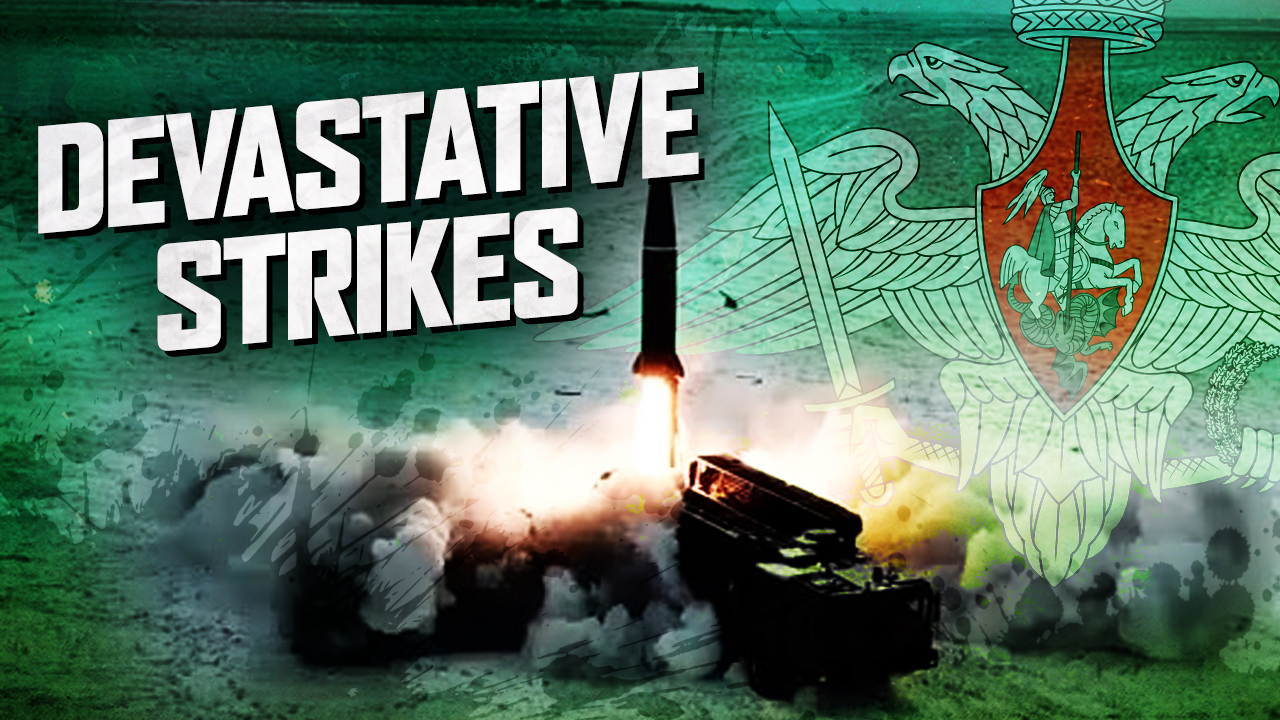The Russian military struck a gathering of Kiev forces and workshops used to repair tanks in the Ukrainian region of Kharkiv using Iskander-M tactical ballistic missiles, the Russian Ministry of Defense announced in two separate statements on July 25.
The ministry said that a gathering in the Scorpion construction company in the industrial district of Kharkov, where foreign mercenaries were deployed, was targeted.
At least 40 foreign instructors and up to 60 Ukrainian troops from the 151st Mechanised Brigade were killed or wounded, according to the ministry, which released video footage of the missile strike.
Also in Kharkiv, the ministry said that two workshops of an armored vehicle repair plant belonging to Kiev forces were targeted and destroyed.
“Repairs of the AFU [Armed Forces of Ukraine] armored vehicles in the workshops of the plant were stopped,” it added.
The ministry and Russian media shared two videos showing multiple missiles impacting the workshops of the plant. A fire broke out as a result of the attack.
The Iskander-M missile used in the recent strikes on Kharkiv has a range of nearly 500 kilometers. It can be armed with different conventional warheads, including a cluster munitions warhead, a fuel–air explosive enhanced-blast warhead, a high-explosive fragmentation warhead, an earth penetrator for bunker busting and an electromagnetic pulse device for anti-radar missions.
The highly-maneuverable missile is guided by a GLONASS-aided inertial navigation system. It can be also equipped with an optical seeker with a digitized scene-mapping area correlator system for terminal guidance.
Russia increased production of Iskander-M missiles after the start of the special military operation in Ukraine more than two years ago. The Russian military began to rely more on the system to quickly and accurately target high-value Ukrainian targets in recent months.
_______________________________________________________________________________________________________________________
SouthFront: Analysis and Intelligence
NOW hosted at southfront.press
Previously, SouthFront: Analysis and Intelligence was at southfront.org.
The .org domain name had been blocked by the US (NATO) (https://southfront.press/southfront-org-blocked-by-u-s-controlled-global-internet-supervisor/) globally, outlawed and without any explanation
Back before that, from 2013 to 2015, SouthFront: Analysis and Intelligence was at southfront.com







atacking large concrete factories with iskander missiles is a wrong solution. damages are ilusive, all machines inside factories and into the yard ( tens of tanks !!) remain untouched or with just scratches. here need to being used a fab 3000 or a bigger aviation bomb on each factories to demolish them and destroy war machines from inside.
nuke can make it
may be these tanks aren’t operational and used as donors. find prewar photos of the har’kov tractor plant (хтз), there were hundreds of “dead” tanks, mainly t-64.
exactly. this is about eliminating the skilled workforce. it is more valuable than those piles of steel.
they are using smerch 300mm rockets and no iskander m ( explosions are compatible with smerch)
odhalili koncentráciu tankov, tak mali konať. mali tam hneď poslať aspoň 4 ks fab 1500, no zrejme najlepšie by ale boli fab 3000!!! tie by im v tom závode poriadne poupratovali. svetu mier!!!
usa will soon supply afu with tactical nukes…heheheh
and russia will use more powerful nukes and ukraine will not exist.
extinction of all ukrainians is certain, besides there are millions of russians to replace all the soon to be extinct dead ukrainians…hehehehehehe
so, you’re willing to die in global thermonuclear war.
hell then, so be it. i’m ready. but you’re not. you’re a windbag, nothing more.
donetsk frontline seems to remain static. why???
to make sure of the extinction of all ukrainians!!!
likely churning, smo-style